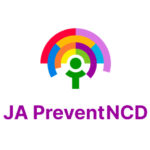A group of experts from sustainability work package of Joint Action PreventNCD delve into the dangers posed by commercial forces—known as the commercial determinants of health (CDoH)—and their impact on our wellbeing. Monika Robnik Levart and colleagues discuss the potential of a Wellbeing Economy to address these issues, and the collaborative efforts needed to make the healthiest option the easiest option.
Non-communicable diseases (NCDs), including cancer, heart disease, diabetes, stroke, and chronic lung conditions, account for 74% of all global deaths. Europe is no exception, as it grapples with a heavy burden from these largely preventable diseases, which continue to have a devastating impact on both individual and public health.
NCDs are associated with unhealthy lifestyles and environmental risk factors, but this does not explain the full picture. Beyond lifestyle choices and other individual factors, what’s really driving the rise of NCDs in Europe? The commercial determinants of health (CDoH)—the systems, practices, and pathways through which commercial actors drive health and equity—play a major role in shaping the environments we live in. These determinants influence the lifestyle ‘choices’ available to us, such as access to healthier food, our environment, and tobacco and alcohol use, having great impact on our health outcomes.
Addressing these determinants isn’t easy. It requires a coordinated, multi-level response that tackles not just individual habits but also the structural and commercial influences that shape them. Policy shifts that prioritise public health—such as stronger regulations on harmful product marketing, improved access to nutritious food, and more stringent environmental protections—are crucial steps in addressing the root causes of NCDs. The Joint Action Prevent Non-Communicable Diseases (JA PreventNCD) initiative is designed to address determinants of health, including the challenge of industry influence, by supporting strategies and policies that aim to reduce the burden of cancer and other NCDs, focusing on both individual and societal risk factors.
If we, as health professionals, don’t take on the CDoH, building healthier communities and reducing health disparities becomes almost impossible. Being motivated by the profound impact that commercial determinants have on public health, especially in addressing NCDs, enables us to foster healthier communities and reduce health disparities. JA PreventNCD offers numerous potentials for such positive changes.
Commercial determinants of health: the root cause of our public health crisis?
In a recent groundbreaking report from WHO, just four industries–alcohol, tobacco, ultra-processed foods, and fossil fuels are reportedly responsible for 2.7 million deaths across the European region each year. The findings underscore the significant impact these major commercial products and practices have on public health.
Behavioural risk factors, including alcohol and tobacco use, unhealthy diets, and physical inactivity, are preventable causes of cancer and NCDs. Evidence consistently shows that socially and economically vulnerable populations face the highest risks of death and disability due to these harmful products. Public health experts and NGOs have long advocated for stronger policies to mitigate these risks, calling on policymakers to amend existing legislation.
Yet, despite this advocacy, the implementation of policies that could provide quick and effective health benefits, such as taxation, prevention of unhealthy marketing, and sale restrictions, remains low, both at the EU level and within Member States. But why?
Big industry, big influence?
While there are multiple reasons for these delays, Europe’s struggles to implement stronger policies aren’t due to a lack of solutions. Industry interference is often cited as one of the main barriers to creating this change. By actively lobbying against certain health-related policies and legislations, powerful industries play a significant role in shaping society’s health profile such as the delays of the EU’s tobacco regulation and its now shelved Farm to Fork strategy. Their influence goes far beyond the meeting room, hindering policies, practices, tools, and even our surroundings. What effect does this have on public health?
During the COVID-19 crisis, the effect of industry intervening in policy was evident. Despite public sector involvement in developing vaccines, pharmaceutical companies used their intellectual property to drive up prices to make those vaccines largely inaccessible to some countries. This practice is an example of ‘greedflation,’ where companies capitalise on urgent public needs to inflate prices, putting essential goods and services out of reach for vulnerable populations.
Having said this, there are success stories where governments have bitten back. Finland has successfully implemented a comprehensive tobacco control strategy, while Ireland’s alcohol labelling approach aims to reduce the consumption of alcohol products by adding a label stating the calorie content and grams of alcohol in each product.
Beyond the EU, the UK government recently announced its approach to tackling industry’s influence on public health. Starting in October 2025, advertisements promoting foods high in fat, sugar, and salt will be banned before the watershed (before 21h00), along with a total ban on paid-for online adverts. These measures aim at combatting childhood obesity.
Still, a society that prioritises economic growth as its sole measure of prosperity will inevitably resist policies that appear to ‘block’ profits. As a result, worryingly, health and wellbeing policies are often a secondary thought. Such action hinders initiatives that conflict with industry interests. Recognising this, public health professionals now call for a radical change: a move towards a Wellbeing Economy. Such an economy is designed to serve and equalise society by prioritising social, health, cultural, equity, and nature outcomes. With this, we have a chance to create policies that foster healthier, more equitable societies.
To make this vision a reality, through JA PreventNCD, we’re exploring the key elements of a Wellbeing Economy across Europe, assessing EU Member States and the role of the annual Wellbeing Economy Forum. By reimagining prosperity through this lens, we can create systems where health isn’t a commerce casualty but instead a cornerstone of policy.
By making wellbeing the end-goal of economic activity and aligning economic systems with health and wellbeing priorities, it becomes possible to create environments that could ease the influences of harmful industries and foster healthier communities to reduce the burden of NCDs. But health-promoting environments aren’t just a ‘nice’ commodity of society; they’re necessary to help empower individuals to make informed, healthy choices.
This isn’t about telling people how to live better but rather about creating environments where healthy choices are the easiest choices by default, advocating for policies that promote health equity. ‘Behavioural risk factors’ such as alcohol, food, physical inactivity, smoking and other nicotine use should be seen not as isolated choices but viewed in the wider context of the structural pressures and biases created by the CDoH.
In this together: uniting for a healthier, fairer future
Of course, tackling the CDoH is not a solo mission. It needs cross-sector collaboration and advocacy that extends well beyond traditional health ministries. During a recent event led by the FILTERED initiative, big industry narratives were challenged, and participants unflinchingly called out the powerful role of marketing, lobbying, and political influence, which big industries use to reshape public perceptions and block progress on essential NCD policies.
The event was more than a conference; it was a testament of public health professionals taking a stand against the engrained industry narrative, instead creating a call to action for a future where it’s possible to shift public perceptions and influence policies that prioritise health and wellbeing over commercial interests.
Taking accountability
One of the long-term goals within the JA PreventNCD is to establish lasting practices, connections, and regulations that effectively curb the future influence of harmful commercial practices to the maximum possible extent. This is no longer just a goal; it is necessary to protect public health in Europe.
Employing an accountability framework—conceptualisation of a four-step course of action needed to guide the implementation of specific public health policies and practices. This framework empowers stakeholders to take meaningful action: first by assessing the current situation (taking the account), then by communicating findings transparently (sharing the account), followed by enforcing necessary changes (holding the account), and ultimately striving for continual improvement (responding to the account).
By applying this structured approach to both government actions and industry practices, we can better understand and monitor the policymaking process in public health, leading to sustainable improvements.
In the past, the ‘enforcement’ and ‘improvement’ stages have often fallen short, leaving us with important results and findings but without the right implementation. This time, however, we’re taking more proactive measures. By anticipating private sector activity and the delicacies of the decision-making processes, we are putting great emphasis on these two stages. We will work with governments, NGOs, youth and experts to develop sustainable solutions to counter commercial determinants of health.
The past has taught us valuable lessons; now is the time to apply them for a better future. As health professionals, it is on us to keep calling for a Wellbeing Economy. But if we are to do this, we need to see health as a priority in every policy decision, challenge the dominance of harmful commercial interests, and work collectively across sectors. Only then can we support people to make healthier choices, strengthen communities, and create a fairer Europe.

JA PreventNCD
The aim of JA PreventNCD is to support Member States in implementing effective cancer and NCD prevention strategies. This involves a coordinated approach across six technical work packages, addressing health determinants common to cancer and NCDs, and assessing the effectiveness and efficiency of various prevention methods across Europe.
